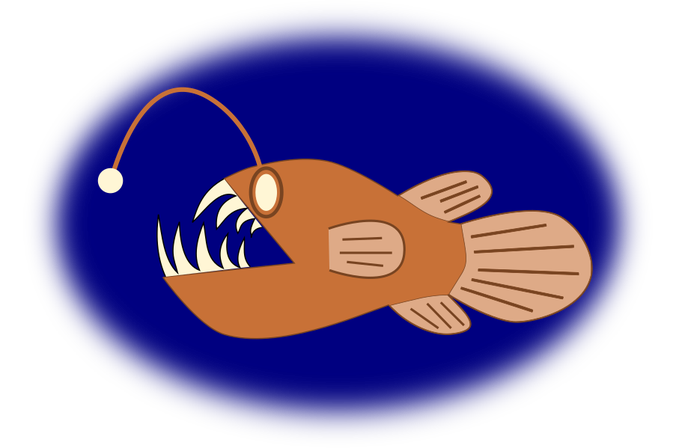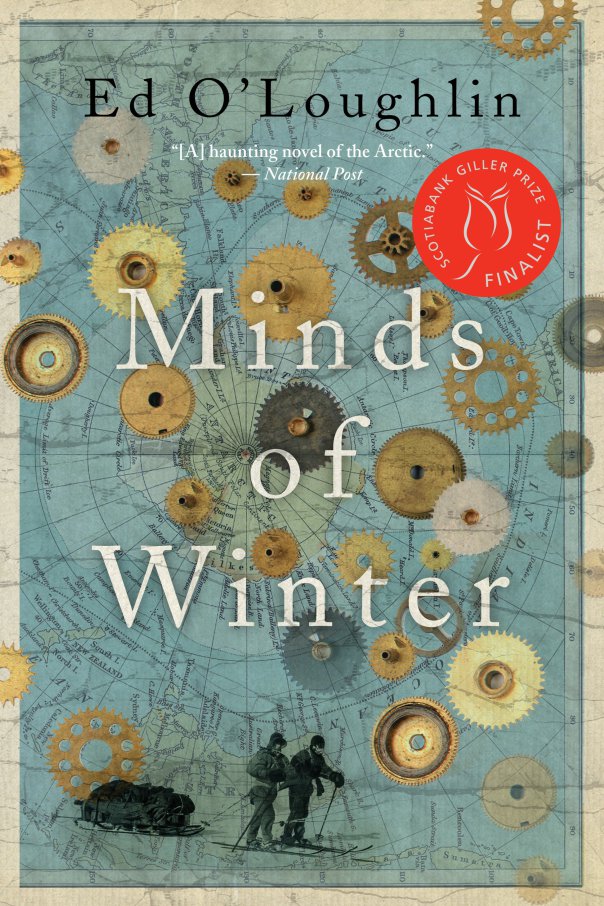
As promised, this is the first of a series of posts on fiction that uses science excellently. I’m starting with someone who isn’t actually one of my favorite authors, but uses science in a way that (for me) exemplifies what I think of as the “wonder” factor: Peter Watts.
Watts is a marine biologist turned very bleak sci-fi writer, and he uses his scientific training fantastically. Check out one of this guy’s books and you may be so creeped out by his ideas that you’ll have trouble falling asleep. He seems to really enjoy choosing concepts that have disturbing and pessimistic implications for humanity, which he complements nicely with his characters and plot. Style is subjective, of course, but I enjoy his and I hope you will too.
I’m describing some mild spoilers for his books, so check out his page and his books first if you prefer. In case you decide not to read the rest of this post because you want to be totally surprised by the books, you should stop here, but I really think the quote at the top of his page communicates the overall message I’m trying to get across: “Whenever I find my will to live becoming too strong, I read Peter Watts.”
I’m going to talk about two examples of what I think Peter Watts does so well, but my description is (of course) not nearly as enjoyable as reading his books. Please do that too—these two at least are available on his site for free.
The first one is Starfish, the first of his Rifters trilogy, in which a submarine crew encounters a previously unknown deep-sea life form. It turns out to be an ancient extremophile that is actually a remnant of living organisms that aren’t DNA-based like all the life we know, but instead encode and replicate their genetic material using RNA (which plays a role in protein synthesis for all DNA-based organisms).
This is a real thing, not in the sense that such life forms have been found, but in the sense that the idea of ancient, non-DNA-based living organisms has been thrown around by evolutionary biologists. Being a biologist himself, Watts has some interesting notes for the curious, which you can read for yourself here following the full text of the novel provided on his site. This is also the first book of a trilogy, but I won’t spoil anything else about it here.

Just a friendly, nightmarish reminder that this is one of the deep-sea denizens we ALREADY know about.
Moving from the deep sea to deep space, Blindsight follows a spaceship crew that sets out to investigate the unknown source of a mysterious signal. They spend a lot of effort trying to figure out what it wants, how to communicate with it, and so on, and in the end it turns out not to be sentient at all. This life form is so evolved that it can imitate self-awareness as an adaptation for dealing with sentient beings, but sentience itself is an evolutionary disadvantage that it’s discarded or never developed in the first place. The idea used in the novel to explain this is the Chinese room argument, originally made in the context of discussing the advent of true AI.
This is also a real thing—both the Chinese room argument and the possibility raised by some scientists that self-awareness might conceivably be an unfavorable trait in evolutionary terms. (Again, Watts provides both the full text of Blindsight and a handy section of notes and references afterward. I found this one particularly interesting and highly recommend at least skimming it.)
Blindsight and its sort-of sequel Echopraxia really took hold of my imagination, in a good but unpleasant way. Here’s my brief summary of how I ended up thinking, or trying not to think:
Just take a moment to remind yourself that you don’t, in fact, really have any proof that everyone in your life is truly conscious and self-aware, instead of just being extremely good at fooling you.
Now go to another site and look at some cats or something and stop shivering.
Oh, and these books have vampires too, with related scientific notes.
You’re welcome.
Advertisements Share this:




